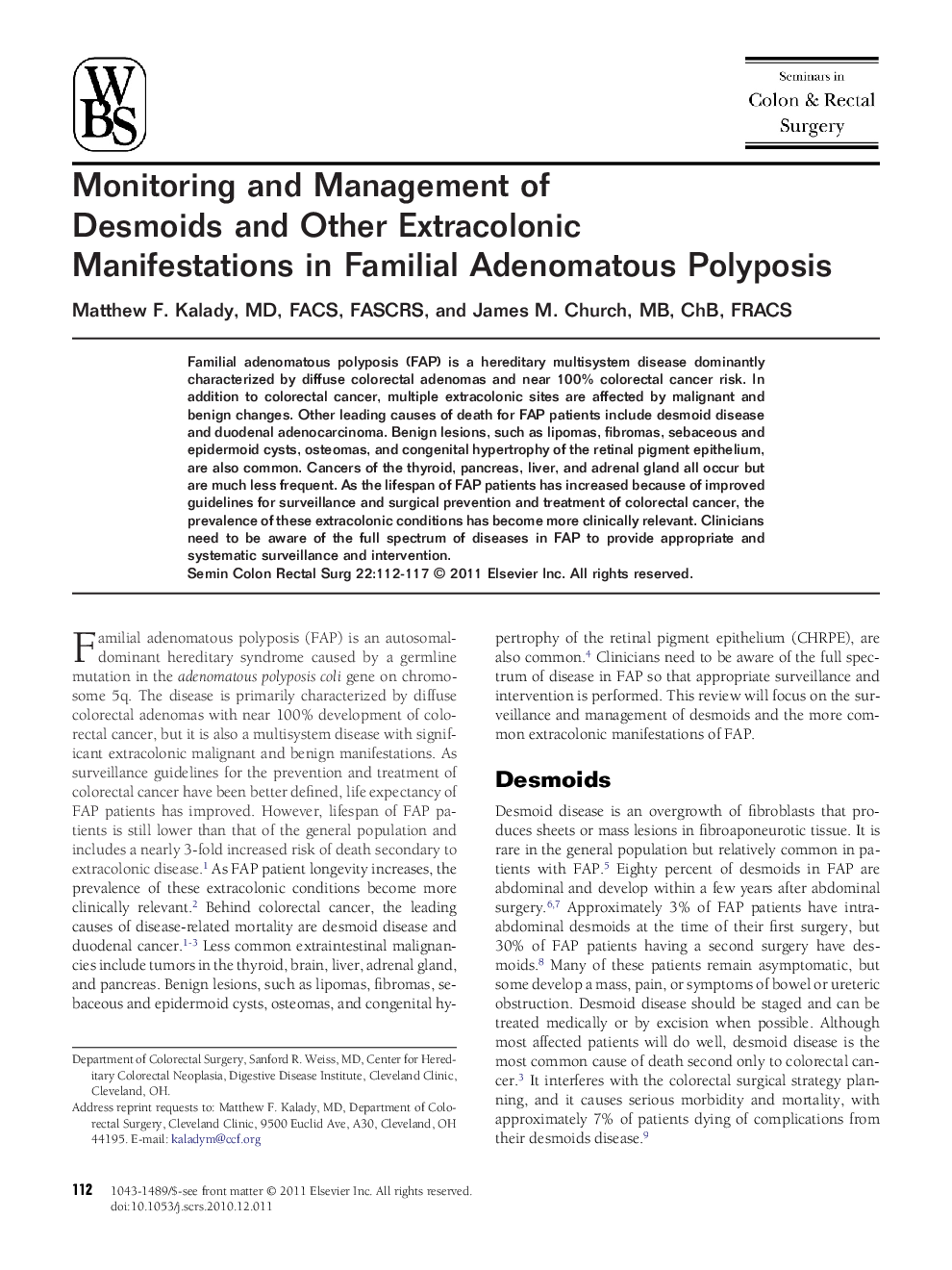| Article ID | Journal | Published Year | Pages | File Type |
|---|---|---|---|---|
| 3319486 | Seminars in Colon and Rectal Surgery | 2011 | 6 Pages |
Abstract
Familial adenomatous polyposis (FAP) is a hereditary multisystem disease dominantly characterized by diffuse colorectal adenomas and near 100% colorectal cancer risk. In addition to colorectal cancer, multiple extracolonic sites are affected by malignant and benign changes. Other leading causes of death for FAP patients include desmoid disease and duodenal adenocarcinoma. Benign lesions, such as lipomas, fibromas, sebaceous and epidermoid cysts, osteomas, and congenital hypertrophy of the retinal pigment epithelium, are also common. Cancers of the thyroid, pancreas, liver, and adrenal gland all occur but are much less frequent. As the lifespan of FAP patients has increased because of improved guidelines for surveillance and surgical prevention and treatment of colorectal cancer, the prevalence of these extracolonic conditions has become more clinically relevant. Clinicians need to be aware of the full spectrum of diseases in FAP to provide appropriate and systematic surveillance and intervention.
Related Topics
Health Sciences
Medicine and Dentistry
Gastroenterology
Authors
Matthew F. MD, FACS, FASCRS, James M. MB, ChB, FRACS,
